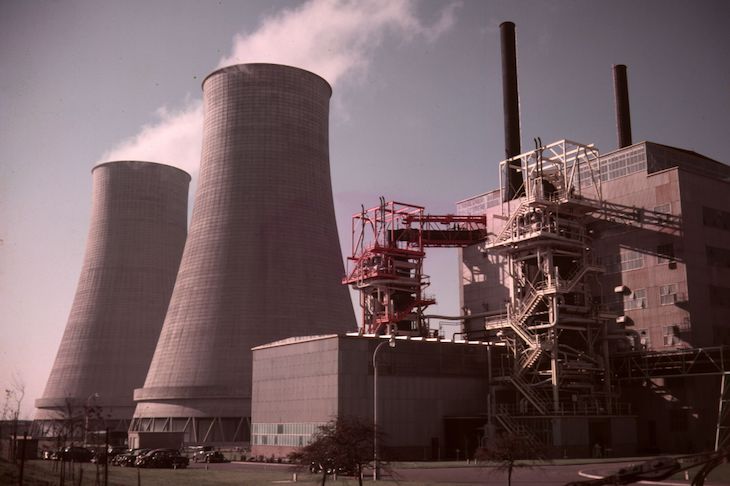Amid the attention given to the ‘Three Brexiteers’ in their efforts to establish post-Brexit trade with the rest of the world, the work of business secretary Greg Clark often gets overlooked. But in conversation with James Forsyth at the Conservative party conference in Manchester, this is what we learned about the government’s business strategy. The event was sponsored by the Nuclear Industry Association.
With unemployment at a 40-year low, Britain can claim to be the ‘jobs capital of the world’, but we can’t claim to be the earnings capital of the world. The productivity gap has been puzzling economists for years, with little improvement since the economic crisis of 2008/09. ‘If you look at output per hour worked we are less than France, Germany, Italy and the US.’
One suggestion is that our low productivity is inextricably linked to our flexible labour markets. In France, for example, where it is harder to hire and fire staff, a factory-owner might be incentivised to automate a process. In Britain, he is more likely to be happy to employ extra labour. Is that a problem? Clark thinks not. The alternative – the French model – would result in a higher statistic for output per worker, but it would also result in higher unemployment.
What is a problem in Britain, however, is a shortage of technical skills. ‘There are really good jobs available, there are orders in order books but they are difficult to fulfil because there are not enough suitable workers.’ Engineering does not have the prestige it does in some countries, with the result that not enough people choose it as a career. Industrial strategy should not be about picking particular firms and supporting them but in correcting cross-economy weakness, such as this shortage of good skills.
One promising development is the National Automotive Innovation Centre at the University of Warwick. Mainly funded by the industry itself, it will offer practical support to companies of all sizes, start-ups included. It will offer 1,000 apprenticeships. Other industries should be thinking of taking a similar approach. One in need of an injection of new talent is the nuclear industry. Britain is seeking to build a new generation of nuclear power stations, but many nuclear engineers employed in Britain are close to retirement. Others have to be brought in from other countries. One thing we do have, however, is skills associated with the decommissioning of nuclear power stations – a legacy of Britain being the first country in the world to develop nuclear energy. And the government’s National College for Nuclear programme, which will aim to develop skills especially in the South-West and North-West, should help to address the problem.
On Brexit, there is a consistent view among large and small businesses that we ‘need to avoid cliff edge’ when we leave the EU. For the nuclear sector this is pertinent as the government has begun the process of withdrawing from the Euratom Treaty as part of the Brexit process. Although it is of concern for the industry, Clark notes: ‘If ever there was a policy area in which the common interest is having sensible arrangements in place was advantageous, it is nuclear. There is no advantage in having a fractured relationship.’
Even so, it would be ‘irresponsible not to plan for no deal’. A ‘large part’ of the work of the Department of Business, Energy and Industrial Strategy is in preparing for Britain to crash out of the EU without a deal – even if the government hopes the plan will never have to be implemented.
Following Brexit, Britain will continue to attract investment thanks to its ‘reputation for standards’. People are confident that Britain is a safe place to do business, and few regret it when they do invest here. Our farsighted approach to regulation is one of the reasons for this. The Taylor Review, which looked into changing workplace practices and the initiative to develop a regulatory environment for autonomous vehicles are examples – in the case of the latter Britain is ahead of other countries in addressing such questions as where liability would fall in the event of an accident.







Comments